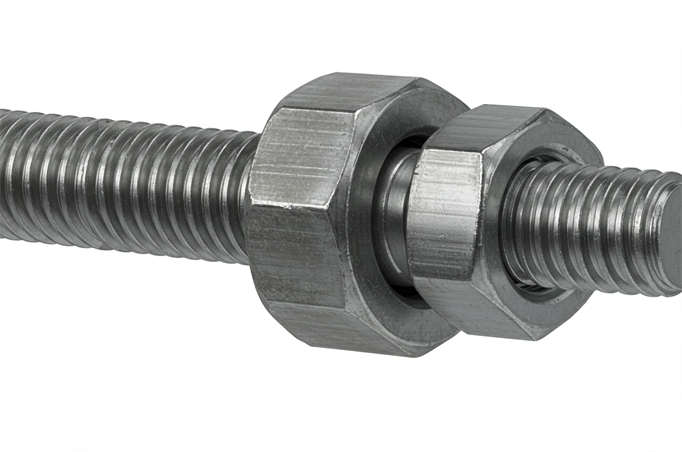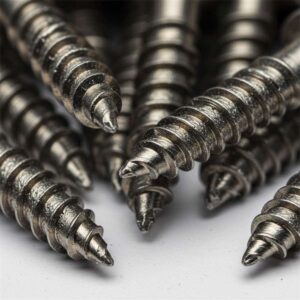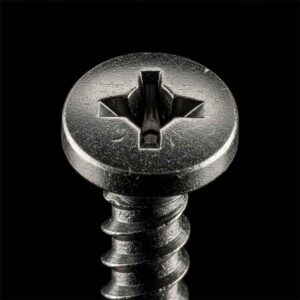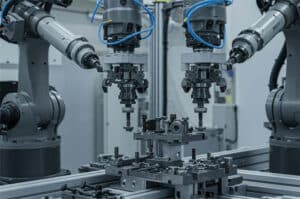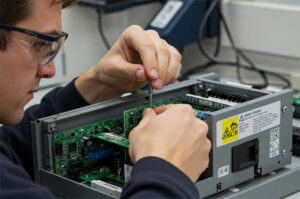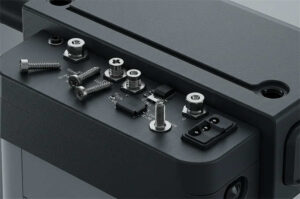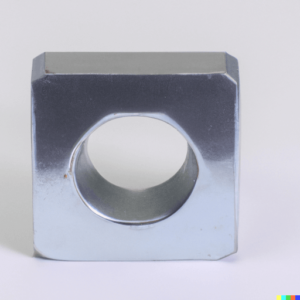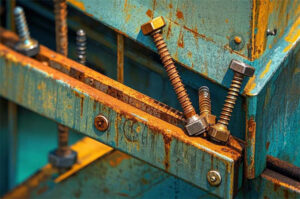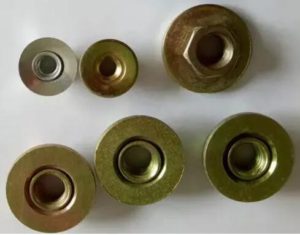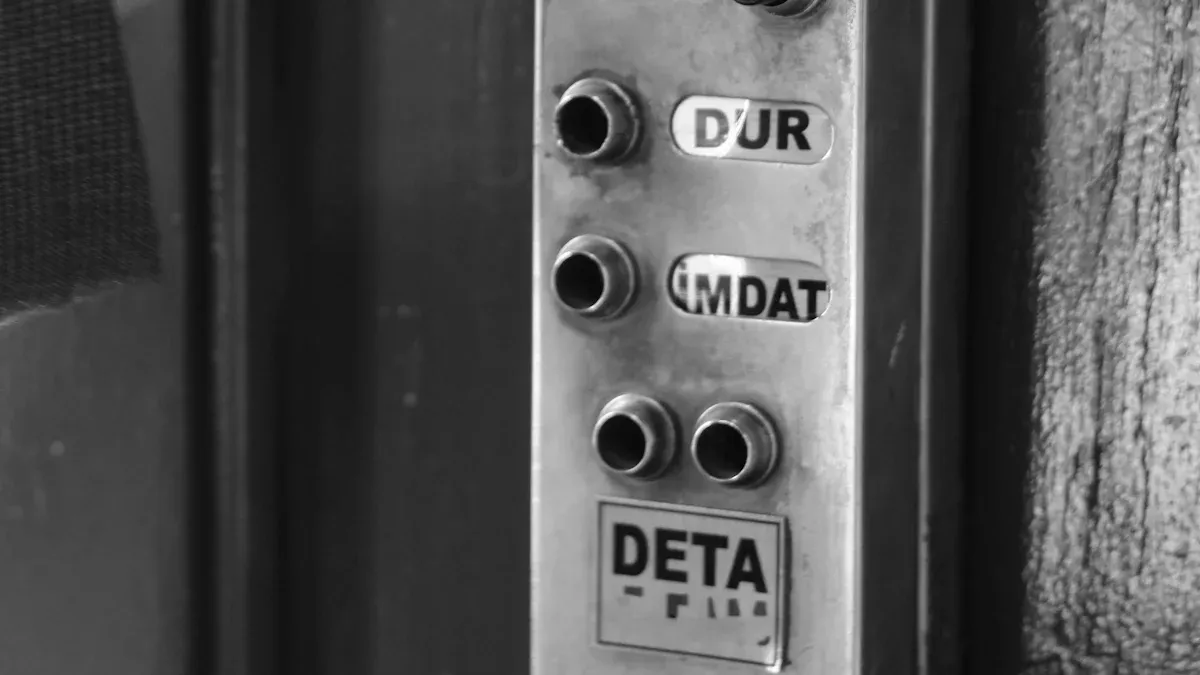
Fuente de la imagen: pexels
Imagine a technician picking an elevator bolt at a busy work site. Grade 2, Grade 5, and Grade 8 have different strengths. Picking the right grade and material keeps machines safe. It also makes them work well. The best choice makes bolts last longer. It helps stop rust and saves money. Every part is important for strong, long-lasting connections.
Principales conclusiones
There are three main grades of elevator bolts. Grade 2 is for light jobs. Grade 5 works for medium loads. Grade 8 is for heavy stress. Picking the right grade keeps things safe and working well.
Bolt grades show how strong and good bolts are. Higher grades, like Grade 8, can take more force before breaking. These are best for tough jobs.
El material of the bolt is important. Carbon steel costs less but can rust. Zinc-plated steel helps stop rust a little. Stainless steel is best for wet or rough places.
Elija siempre el right grade and material for the job. This stops problems and saves money over time.
Do not make mistakes when picking bolts. Do not forget about the environment. Always check what the bolt can do. Picking and putting in bolts the right way keeps machines safe.
Elevator Bolt Grades
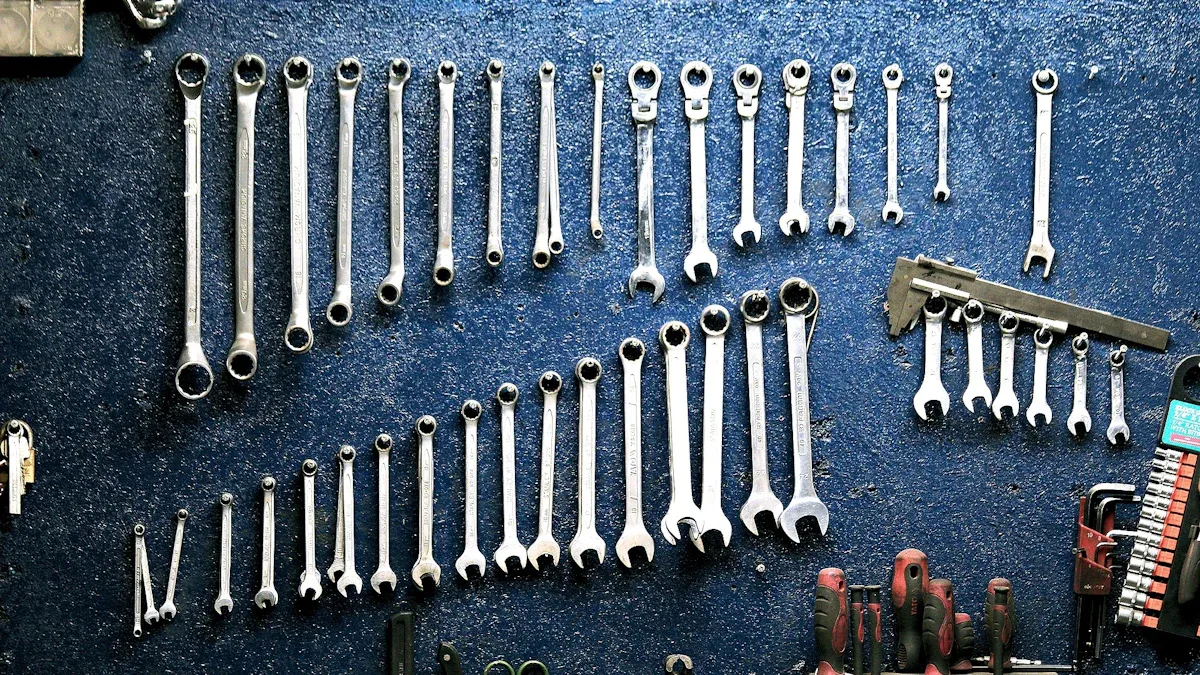
What Are Bolt Grades
Bolt grades show the strength and quality of a bolt. Each grade follows strict standards set by groups like ASTM and ISO. These standards help workers pick the right bolt for each job. The grade tells how much force a bolt can handle before it breaks. Different types of bolts have different grades. For elevator bolts, the most common grades are Grade 2, Grade 5, and Grade 8.
Nota: The grade of a bolt depends on several factors:
The materials used in the construction of the bolt
The material properties of the bolt
The maximum amount of stress that the bolt can handle
The tools suitable for tightening the bolts
The method used for tightening the bolt
Here is a table showing some official standards for bolt grades:
Estándar | Grade/Type |
|---|---|
ASME B18.2.1 | 3/8 de pulgada a 3 pulgadas |
BS 1769 | ½ inch to 2 inch |
ASME B18.2.3.6M | M12 a M36 |
ASTM A193 | Grade B5, B6, B7, B7M, B16, B8, B8 class 1, B8 class 2, B8 class 2B, B8A, B8C, … |
ASTM A307 | Grade A, Grade B |
ASTM A325 | Type 1, Type 2, Type 3 |
ASTM F1554 | Grade 36, Grade 55, Grade 105 |
ISO 7412 | M12 a M36 |
DIN 6914 | M12 a M36 |
Why Grades Matter
Choosing the right grade keeps machines safe and working well. Higher grades mean stronger bolts. For example, Grade 8 bolts have more tensile strength than Grade 2 or Grade 5. This means they can handle more force before breaking. The table below shows the difference in strength:
Calificación | Resistencia a la tracción (psi) |
|---|---|
Grado 2 | 60,000 – 74,000 |
Grado 5 | 105,000 – 120,000 |
Grado 8 | 150,000 |
Many types of bolts are used in machines. Each type has a job. Some hold light loads. Others must handle heavy stress. Bolt grades help workers match the right bolt to the right job. In industrial machinery, bolts must not bend or break under load. Fatigue strength is also important. It shows how well a bolt can handle repeated stress over time. Grade 8 bolts work best for heavy loads and high stress. They keep connections strong and safe.
Elevator Bolt Materials
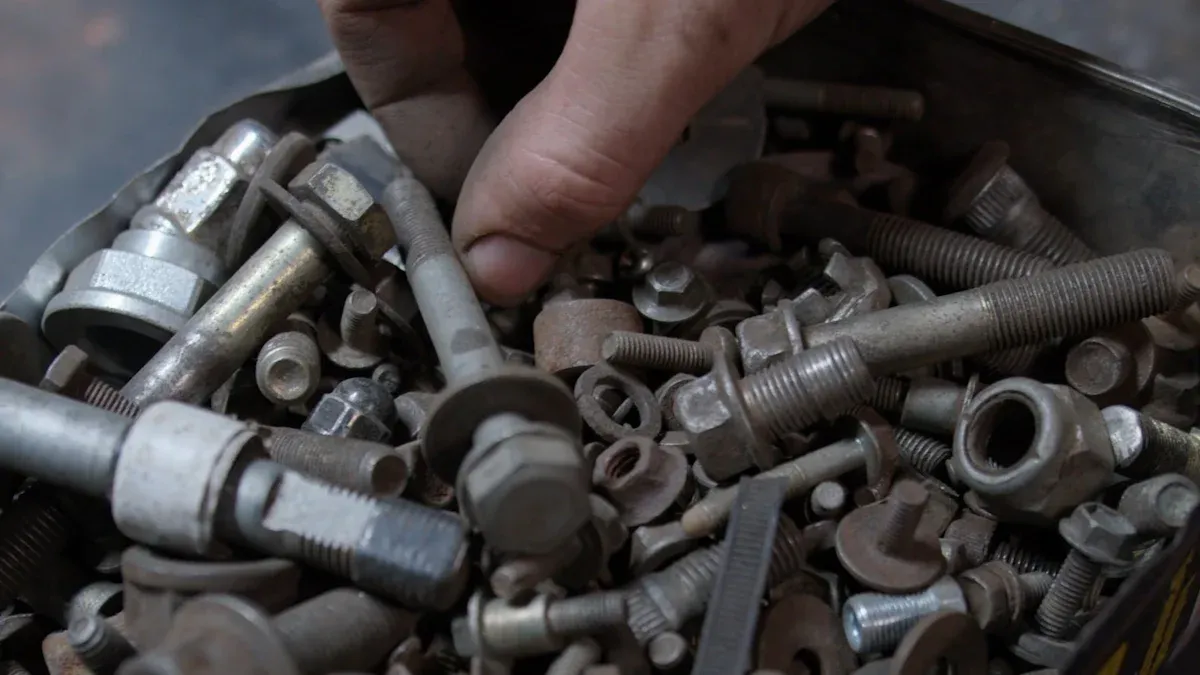
Plain Carbon Steel
Plain carbon steel elevator bolts use a mix of iron and carbon. This material gives strong bolts at a low cost. Many builders choose carbon steel for general structures because it holds up well under stress. The table below shows some key properties:
Propiedad | Valor |
|---|---|
Rockwell B70-B100 | |
Carga de prueba | |
Límite elástico | 36,000 psi min |
Resistencia a la tracción | 54,000 psi min |
Elongation | 18% min |
Reduction of Area | 35% |
Consejo: Carbon steel bolts need a protective coating for outdoor or wet areas. Without it, they can rust quickly.
Plain carbon steel costs less than stainless steel. However, it does not resist corrosion well. Builders should avoid using plain carbon steel in marine or chemical settings unless they add extra protection.
Zinc Plated Steel
Zinc plated steel bolts start with plain carbon steel. A thin layer of zinc covers the surface. This zinc layer helps protect the bolt from rust. Zinc plated bolts work well in dry or indoor places. They cost less than stainless steel but offer only limited corrosion resistance.
Zinc plating slows down rust but does not stop it in harsh or wet environments.
These bolts suit light-duty jobs where moisture is not a big problem.
Acero inoxidable
Stainless steel elevator bolts stand out for their high corrosion resistance. Most use 18-8 stainless steel, which contains chromium and nickel. This mix keeps bolts strong and shiny, even in wet or chemical-heavy areas.
Tipo de material | Resistencia a la corrosión | Suitability for Harsh Environments |
|---|---|---|
Superior | Highly suitable | |
Black Steel | Moderado | Less suitable |
Zinc-Plated Options | Limitado | Not suitable |
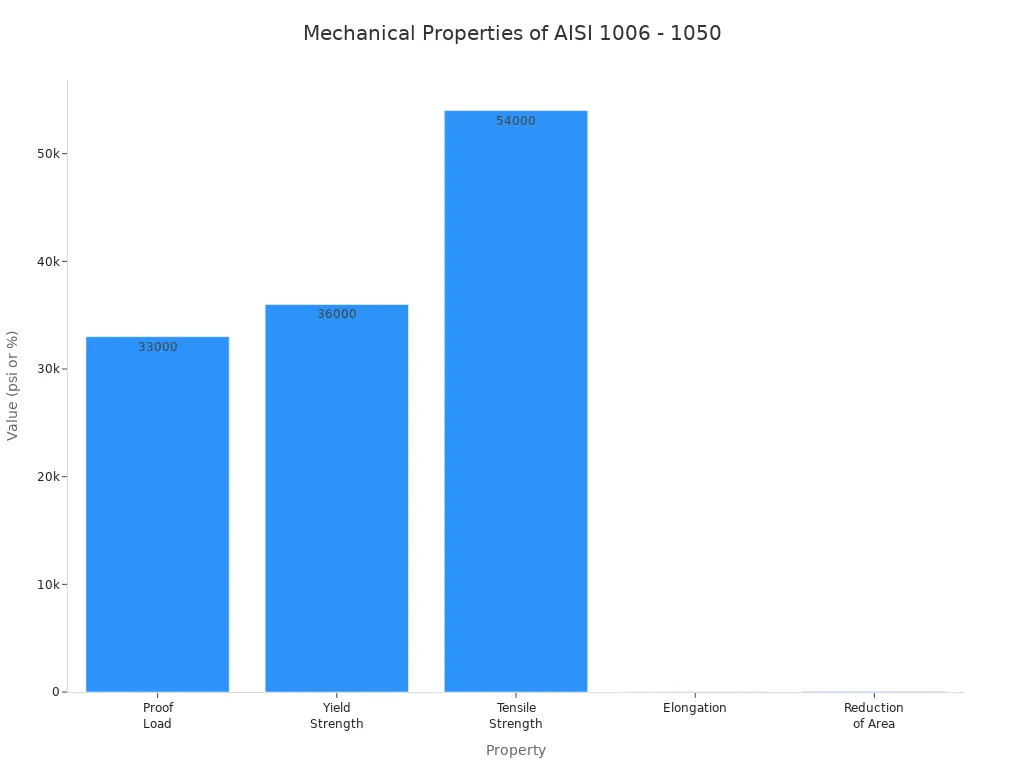
304 stainless steel bolts fit most general uses. For marine or chemical plants, 316 stainless steel works best because it resists corrosion even more. Stainless steel bolts cost more, but they last longer in tough environments.
Nota: Choosing the right material depends on the job site. Moisture, chemicals, and cost all play a role in making the best choice.
Grade Comparison
Grado 2
Grade 2 elevator bolts are the most basic kind. People use them for light jobs. These bolts are made from low carbon steel. They do not get extra heat treatment. Grade 2 bolts are not as strong as other grades.
Nominal Diameter | |
|---|---|
1/4 – 20 | 1750 |
5/16 – 18 | 2900 |
3/8 – 16 | 4250 |
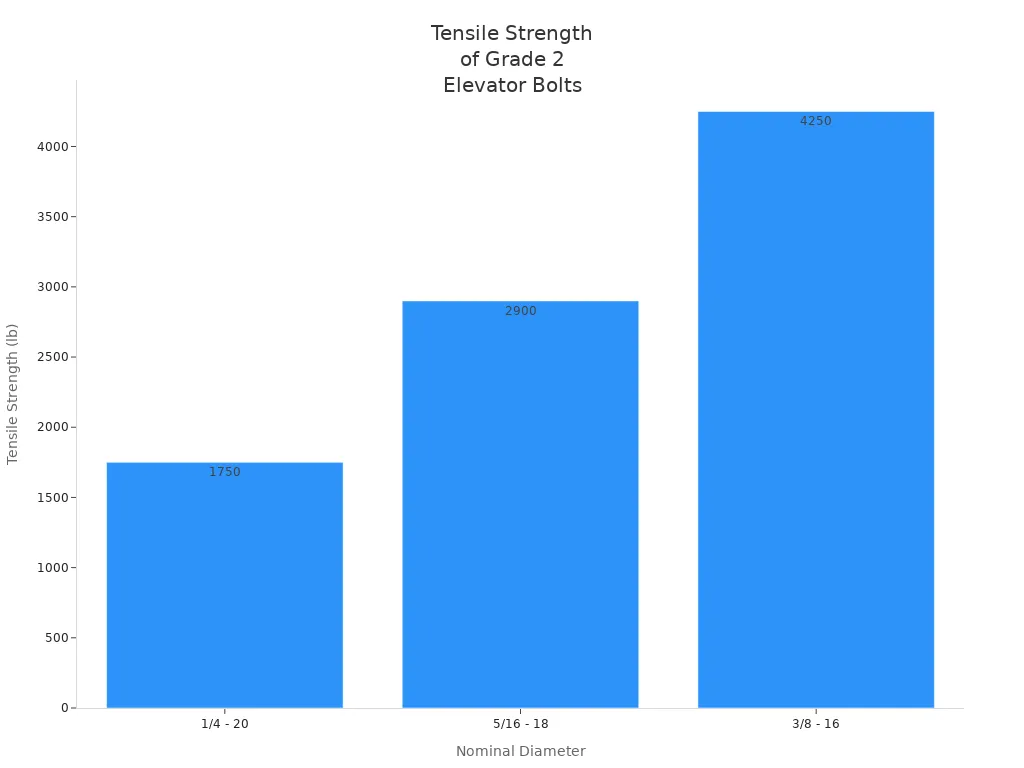
Grade 2 elevator bolts work well when loads are light. They are used in conveyor systems and farm machines. Workers use them to attach buckets to conveyor belts. These bolts are also used in belting systems. Their shape stops them from turning in soft materials.
Pros:
Low price
Simple to put in
Good for soft things
Contras:
Not very strong
Wears out fast
Not good for heavy loads
The material you pick matters for Grade 2 bolts. Plain carbon steel is best for dry, indoor spots. Zinc plating gives some rust protection. Stainless steel keeps bolts from rusting but costs more.
Grado 5
Grade 5 elevator bolts are stronger than Grade 2. They are made from medium carbon steel and get heat treated. These bolts can handle more weight than Grade 2. Pernos de grado 5 are used in many machines and vehicles.
People pick Grade 5 bolts when they need more strength but not the most. These bolts are found in farm tools, light machines, and car parts. Their strength makes them good for medium stress.
Pros:
Stronger than Grade 2
Good mix of price and strength
Works for many uses
Contras:
Not as strong as Grade 8
Might need coatings to stop rust
Not great for very heavy loads
You can get Grade 5 bolts in zinc-plated steel for inside use. Stainless steel is better for wet or rusty places. Grade 5 bolts work better than basic bolts but are not as strong as Grade 8.
Grado 8
Grade 8 elevator bolts are the strongest of these grades. They are made from alloy steel and get special heat treatment. These bolts are very strong and last a long time.
Especificación | Definition | Amount |
|---|---|---|
Tensile strength | The maximum amount of force a fastener can withstand before fracturing | |
Proof load | The minimum amount of force that a fastener must withstand without deforming | ≥ 120,000 PSI |
Límite elástico | The load carried at the point where a fastener permanently deforms | ≥ 130,000 PSI |
Grade 8 elevator bolts can hold very heavy loads. Their strength depends on their size:
1/4″ diameter: about 7,365 lbs
3/8″ diameter: about 16,500 lbs
1/2″ diameter: about 29,400 lbs
5/8″ diameter: about 46,000 lbs
3/4″ diameter: about 66,200 lbs
1″ diameter: about 117,800 lbs
Grade 8 bolts are used in elevators and conveyor systems. Their flat head and square neck fit tight spaces. These bolts can take a lot of stress and keep parts safe. They also hold soft materials in factories.
Pros:
Strongest of the common bolts
Very tough
Good for important jobs
Contras:
Cuesta más
May need special tools to put in
Too much for light jobs
The material you choose changes how the bolt works. Alloy steel gives the most strength. Zinc plating is good for dry places. Stainless steel stops rust in tough spots but costs more.
Tip: Always pick the right bolt grade and material for your job. Grade 8 elevator bolts are best for heavy work. Grade 2 and Grade 5 are better for lighter jobs.
Elevator Bolt Selection
Application Needs
Every industrial job has unique needs. Workers must look at the load, the environment, and the cost before choosing a bolt. Heavy machines need bolts that can handle high force. Wet or chemical-filled areas need bolts that resist rust. Some projects have tight budgets, so cost matters too.
The table below shows important criteria for picking the right bolt:
Criterios | Descripción |
|---|---|
Shows the maximum force a bolt can handle before breaking. This is key for heavy-duty jobs. | |
Bolt Grade Standards | Each grade follows standards that tell if a bolt fits a certain job. |
Composición del material | Strong bolts use special steel and treatments to last longer in tough tasks. |
A worker should always check these points before making a choice. Picking the wrong bolt can cause machines to fail or break.
Matching Grade and Material
Choosing the right grade and material keeps machines safe and working. Grade 2 bolts fit light jobs. Grade 5 bolts work for medium loads. Grade 8 bolts hold up under heavy stress. The material also matters. Carbon steel works for dry, indoor places. Zinc-plated bolts add some rust protection. Stainless steel bolts last longest in wet or harsh areas.
A good match between grade and material means:
The bolt will not break under load.
The bolt will not rust too soon.
The cost stays within budget.
Workers should always match the bolt’s strength to the job’s needs. They should also think about where the bolt will be used. For example, a stainless steel Grade 8 bolt costs more but lasts longer in a wet factory.
Consejo: Always check the machine’s manual or ask an expert if unsure about which bolt to use.
Errores comunes
Many people make mistakes when picking bolts. These errors can lead to machine failure or extra costs. Some of the most errores comunes incluir:
Elegir el wrong grade for the job, which can cause bolts to fail early.
Ignoring the bolt’s mechanical properties, like tensile and shear strength.
Forgetting to check how the material reacts to the environment, especially in places with lots of moisture or chemicals.
Not using the right coatings for bolts in wet or harsh areas, which can lead to rust.
Overlooking the importance of alloy composition and heat treatment for bolt performance.
Failing to match the bolt’s property class to the machine’s needs.
Not tightening bolts to the correct torque, which can cause them to loosen or break.
Nota: Careful selection and proper installation help prevent these problems. Workers should always follow best practices and double-check their choices.
Cuadro comparativo
Factores clave
Picking the right elevator bolt means thinking about a few things. You need to look at strength, how long it lasts, if it can fight rust, the price, and what jobs it fits best. The table below shows how Grade 2, Grade 5, and Grade 8 bolts are different when made from different materials.
Calificación | Material | Fuerza | Durabilidad | Resistencia a la corrosión | Costo | Mejor uso |
|---|---|---|---|---|---|---|
Grado 2 | Plain Carbon | Bajo | Bajo | Poor | Lowest | Light loads, dry areas |
Grado 2 | Zincado | Bajo | Bajo | Feria | Bajo | Indoor, basic jobs |
Grado 2 | Acero inoxidable | Bajo | Medio | Excelente | Alta | Light, wet areas |
Grado 5 | Plain Carbon | Medio | Medio | Poor | Moderado | Medium loads, dry areas |
Grado 5 | Zincado | Medio | Medio | Feria | Moderado | Indoor, moderate jobs |
Grado 5 | Acero inoxidable | Medio | Alta | Excelente | Highest | Medium, wet areas |
Grado 8 | Aleación de acero | Alta | Alta | Poor | Alta | Heavy loads, dry areas |
Grado 8 | Zincado | Alta | Alta | Feria | Alta | Heavy, indoor jobs |
Grado 8 | Acero inoxidable | Alta | Highest | Excelente | Highest | Heavy, wet areas |
Consejo: Stainless steel bolts are best for stopping rust outside. They work great near the ocean or where it is very damp. Zinc-plated bolts are good for dry or inside places.
The price of elevator bolts changes with grade and material. Grade 5 bolts cost more than Grade 2 because they are stronger. Stainless steel bolts cost the most, but they last longer in tough places. Zinc-plated steel gives a good mix of price and rust protection for most inside jobs.
Grade 2 bolts are good for light jobs and save money.
Grade 5 bolts are better for medium jobs and give more strength for the price.
Grade 8 bolts are best for heavy jobs and work the hardest, but they cost the most.
When workers pick bolts, they should match the grade and material to the job. Stainless steel bolts are best near the sea because they do not rust from salt or water. Zinc-plated bolts look nice and last well inside. Hot-dip galvanized coatings help in country or dry places.
Workers should always think about where and how the bolt will be used before picking one. The right bolt keeps machines safe and saves money in the long run.
Picking the right elevator bolt means thinking about grade, material, and what the job needs. Grade 2 bolts are good for light work. Grade 8 bolts are strong and can handle heavy jobs. Stainless steel does not rust easily, but it costs more money. Workers should choose bolts that fit the place and the weight they must hold. Charts y guides help people see how strong bolts are and what jobs they fit. Checking bolts often, tightening them, and keeping them clean helps them last longer. If the job is hard, asking an expert is a smart idea.
Trusted sources show charts with grade marks, types of material, and how strong bolts are.
Guides tell about strength, how well bolts fight rust, and head shapes for different jobs.
Taking care of bolts means checking them, tightening them again after putting them in, and cleaning them so they do not rust.
Preguntas más frecuentes
What is the main difference between Grade 2, Grade 5, and Grade 8 elevator bolts?
Grade 2 bolts have low strength. Grade 5 bolts offer medium strength. Grade 8 bolts provide the highest strength. Each grade fits different load needs in machines and structures.
Can stainless steel elevator bolts rust?
Stainless steel bolts resist rust much better than carbon steel. In most wet or chemical areas, they stay strong and shiny. However, extreme conditions may still cause some corrosion over time.
How do workers know which elevator bolt grade to choose?
Workers check the load, environment, and cost. They use charts or guides to match the bolt grade and material to the job. Heavy loads need higher grades. Wet areas need rust-resistant materials.
Are zinc-plated bolts good for outdoor use?
Zinc-plated bolts slow down rust but do not stop it in harsh weather. They work best indoors or in dry places. For outdoor jobs, stainless steel or hot-dip galvanized bolts last longer.
